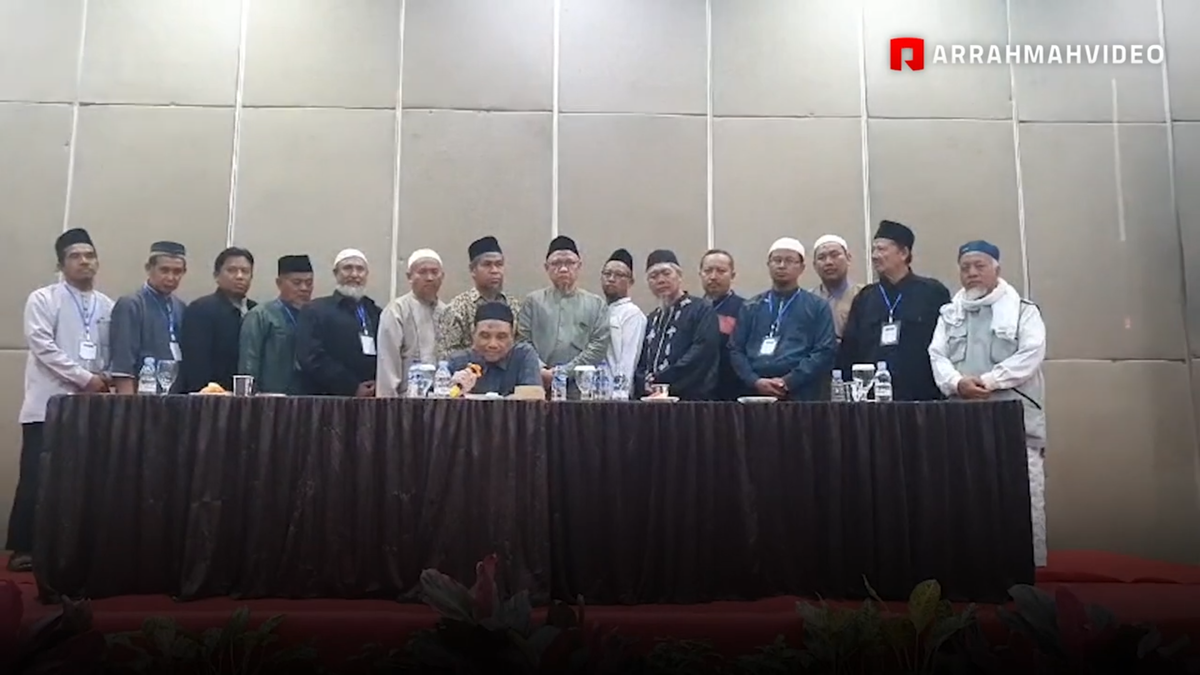INSIGHT: Navigating the Strategic and Policy Implications of Jemaah Islamiyah's Dissolution in Indonesia
The dissolution of Jemaah Islamiyah may seem like a victory, but complacency is risky. Authorities must remain vigilant against potential regrouping or rebranding efforts, which could destabilise the region and attract new recruits. Continuous monitoring is essential.

Bottom line up front:
- Despite JI's apparent dissolution, Indonesian authorities must stay vigilant to prevent any covert regrouping or rebranding efforts.
- The perceived victory over JI may bolster public support for counterterrorism policies, but authorities must guard against complacency due to potential new threats from rebranded factions.
- Any rebranding or regrouping of JI could attract new recruits and resources, posing significant risks to regional stability and necessitating the need for ongoing monitoring to understand and mitigate shifts in political power and influence.
Overview:
On July 3, 2024, a video emerged online showing currently incarcerated leaders of Jemaah Islamiyah (JI), including Abu Rusdan. In this video, the group's senior council, or majelis, led by Rusdan, publicly announced that on June 30, the leadership had unanimously decided to dissolve the organisation. This declaration marks a significant turning point for the group, indicating a formal end to its operations.
What exactly was their statement?
In a 3:19-minute video titled "Jamaah Islamiyah (JI) Membubarkan Diri dan Kembali ke Pangkuan NKRI dan Pancasila" (“Jemaah Islamiyah (JI) Disbands and Reaffirms Commitment to the Republic of Indonesia and Pancasila”), JI's senior council, along with leaders from affiliated educational institutions and Islamic boarding schools, agreed to:
- Dissolve Jemaah Islamiyah and revert to the Unitary State of the Republic of Indonesia.
- Ensure their curricula and teaching materials are free from extremist views and align with Ahlusunah wal Jamaah (Aswaja) teachings, which refer to the mainstream Sunni Muslim community.
- Form a team to review curricula and teaching materials.
- Actively participate in national development to promote a dignified and advanced Indonesia.
- Adhere to Indonesian legal regulations and consistently implement the agreed-upon measures.
The video was published on YouTube by the account Arrahmah_id, which describes itself as "the leading Indonesian Islamic news site" and has 1.29K subscribers. The video received less than 500 views.
Does this mean JI as a group no longer poses a threat?
Under Para Wijayanto’s leadership, JI had maintained a moratorium on violence since 2009, shifting its focus towards dakwah (preaching) and strengthening internal cohesion. However, considering that several of JI’s key leaders are currently incarcerated, we can reasonably infer the following:
- Position of Weakness: JI's decision to dissolve may indicate a state of weakness, potentially forced by sustained pressures and defeats.
- Covert Regrouping: Despite public declarations of dissolution, JI may still be covertly regrouping and restructuring, aiming to adapt to the challenges posed by Indonesian security forces.
- Mutual Agreement: The dissolution might also stem from a negotiated settlement with the Indonesian government, possibly addressing collective grievances of JI members.
- Political Legitimisation: In 2022, JI came close to penetrating the electoral arena in 2022, driven by the conviction that parliamentary participation presented a less risky and potentially more effective avenue for advancing their Islamist agenda within Indonesia's political, social, and religious domains than violent actions. Their dissolution might represent a strategic move dissolve their militant image and reestablish themselves as legitimate political actors.
- Government Coercion: Under President Joko Widodo's administration, there could be governmental coercion behind JI's public statement, signalling to its members to cease their activities or attempts at rebuilding.
In light of Sayf al-Adl’s recent call to arms as al-Qaeda's (AQ) de facto leader, the likelihood of JI re-engaging with the global jihadi network seems increasingly remote. Notably, JI formally severed ties with AQ in 2010, marking a distinct divergence in their operational strategies. By 2021, JI demonstrated no intent to re-establish communication with AQ, underscoring a sustained strategic separation.
However, the clear disassociation from AQ might prompt elements within JI, particularly those feeling disenfranchised, to splinter and seek new alliances. This potential realignment could include re-establishing ties with AQ, reminiscent of past dynamics where isolated members, such as Noordin Mohammad Top in the early 2000s, sought to regain the organisation’s attention by aligning with AQ’s objectives via his own JI offshoot, Al-Qaeda in the Malay Archipelago.
While the recent announcement might suggest a dissolution of JI's current structure, it does not necessarily confirm an end to its activities. Instead, there remains a tangible possibility that JI could resurface under a different banner, continuing its ideological or operational objectives in a new form.
Why it matters?
The dissolution of JI, whether genuine or a strategic manoeuvre, has significant implications for local communities and policy-making in Indonesia, especially those previously under its influence or control. This latest development could be perceived as a triumph for governmental counterterrorism initiatives, potentially shaping future policies and bolstering public support for such measures. However, the government cannot afford to become complacent. JI has a well-documented history of executing major terrorist attacks in the past, and any resurgence or restructuring could pose renewed threats. A rebranded JI might attract new resources or recruits from the younger generation. If JI is covertly regrouping, rebranding, or attempting to infiltrate political spheres to adapt to the stringent security environment, Indonesian authorities must remain vigilant to thwart any potential resurgence. Continuous monitoring of these developments is crucial for understanding and responding to shifts in political power and influence.
*See IPAC's analysis on the dissolution here as well.
ICYMI: Exclusive access to paid subscribers only...
- Insight on Contextualising Al-Qaeda's Call To Arms and Implications for Southeast Asia's Militants.
- Flashpoint on U.S. Sanctions on Malaysian Semiconductor Trading Firm.
- Insight on Reassessing the Ulu Tiram Incident: The Subjectivity of Terror Labels.
- Insight on Jemaah Islamiyah Arrests in Sulawesi: Contextualising the Threat Perception by Alif Satria.
- Insight on India's Elections and Beyond: Balancing Nationalism with Global Aspirations by Hari Prasad.
- The Deep Dive on Shalom Avitan and Illicit Arms Trade in Malaysia's Periphery. A useful read to understand Thailand-Malaysia gunrunning.
- Flashpoint analysis on Iran-Israel Standoff: Navigating a No-Win Situation - Recent military exchanges between Israel and Iran have heightened regional tensions. What implications might this have for global stability?
Please feel free to share The Deep Dive with your colleagues. In addition, we would appreciate it if you could consider becoming a paid subscriber with our tiered subscription packages to support our publication. Your support will help us continue providing valuable insights to assist you in making operational decisions.



